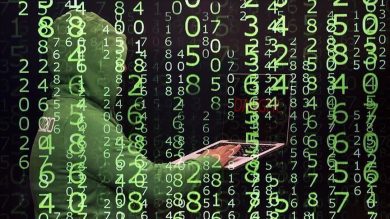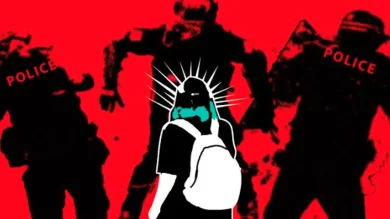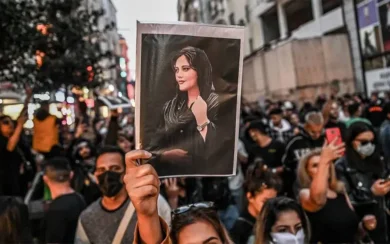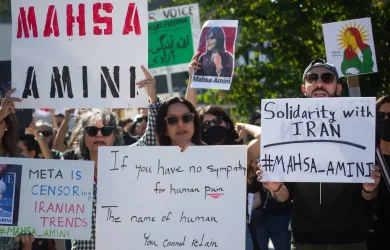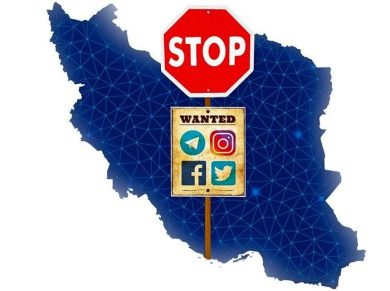The Islamic Revolutionary Guard Corps (IRGC), a powerful and secretive branch of Iran’s military, has long been at the center of international controversy for its involvement in terrorism, regional destabilization, and human rights abuses. Founded in the wake of Iran’s 1979 Islamic Revolution, the IRGC was created to safeguard the revolution’s ideals, but over the decades, it has evolved into a sprawling and aggressive force—militarily, economically, ideologically, and geopolitically.
Designating the IRGC as a terrorist organization is not merely a symbolic gesture—it is a strategic necessity. Such a designation recognizes the IRGC’s proven involvement in terrorist operations, proxy warfare, and suppression of internal dissent. It enables governments to pursue targeted sanctions, legal actions, and diplomatic pressure, weakening one of the most dangerous state-sponsored engines of violence in the world.
1. A State Actor Engaged in Terrorism
Unlike conventional military institutions, the IRGC operates beyond borders and in violation of international norms. Its Quds Force—the IRGC’s extraterritorial unit—has been directly involved in terrorism and insurgency operations across the Middle East and beyond.
Proven Acts of Terrorism
• Lebanon: The IRGC helped establish and continues to support Hezbollah, which is responsible for numerous terrorist attacks, including the 1983 Beirut barracks bombing that killed 241 U.S. Marines.
• Iraq: During the Iraq War, U.S. intelligence confirmed that the Quds Force supplied Shiite militias with lethal improvised explosive devices (IEDs) responsible for the deaths of hundreds of American and coalition soldiers.
• Syria: The IRGC has propped up Bashar al-Assad’s regime, helping to orchestrate mass violence against civilians and fueling a brutal civil war that has displaced millions.
• Yemen: Through its support of the Houthi rebels, the IRGC has intensified a humanitarian crisis and spread instability throughout the Gulf region.
• Europe: Iran, via the IRGC, has been linked to foiled assassination and bombing plots in France, Denmark, and the Netherlands targeting dissidents and opposition figures.
This isn’t isolated behavior. The IRGC systemically and strategically engages in violence to advance its political agenda, meeting all definitional criteria of terrorism.
2. Proxy Warfare and Global Destabilization
Rather than confront adversaries directly, the IRGC uses asymmetric warfare by arming, training, and financing proxy groups across the region. These groups serve as extensions of IRGC policy, enabling Tehran to influence foreign affairs while maintaining plausible deniability.
Proxy Groups Sponsored by the IRGC:
• Hezbollah (Lebanon)
• Hashd al-Shaabi (Iraq)
• Hamas and Palestinian Islamic Jihad (Gaza)
• Houthi rebels (Yemen)
• Shiite militias (Syria, Afghanistan, Bahrain)
These groups routinely engage in attacks on civilians, religious minorities, and foreign embassies. Their actions have plunged several countries into chaos, making the IRGC a central actor in some of the world’s worst humanitarian crises.
3. Human Rights Abuses and Domestic Repression
Inside Iran, the IRGC plays a key role in crushing dissent. It controls the Basij paramilitary force, which is deployed to brutally suppress protests, arrest activists, intimidate journalists, and maintain ideological conformity.
Examples of Repression:
• Women’s rights: The IRGC enforces mandatory hijab laws and targets women activists with imprisonment, torture, and media blacklisting.
• Protests: In response to mass protests in 2009, 2017, 2019, and 2022, the IRGC orchestrated violent crackdowns, killing hundreds and detaining thousands.
• Cyber and surveillance warfare: The IRGC oversees digital surveillance to monitor, track, and silence online dissent.
Its influence extends into Iran’s judiciary and prisons, where political prisoners face torture, rape, and execution—often based on charges of “waging war against God.”
4. Economic Empire that Funds Terror
The IRGC is not just a military organization; it controls a vast economic network spanning construction, telecommunications, energy, and smuggling. Through front companies and illicit trade, the IRGC generates billions of dollars that are funneled into its military and terrorist operations.
• Khatam al-Anbiya: The IRGC’s engineering arm, a major contractor in Iran’s economy and a source of patronage.
• Black-market smuggling: The IRGC has been caught trafficking oil, weapons, and narcotics in violation of international sanctions.
• Money laundering: It uses banks and financial institutions to obscure and move illicit funds globally.
Economic pressure alone cannot contain this network; legal tools associated with terrorism designation are needed to freeze assets and dismantle its reach.
5. The Quds Force: International Reach of Terror
The Quds Force is the spearhead of Iran’s foreign terrorist operations. Named after the Arabic word for Jerusalem, it reflects Tehran’s revolutionary ambition to export Islamic revolution and confrontation with the West.
Its commanders have overseen operations in at least a dozen countries. The U.S. State Department designated the Quds Force as a terrorist organization in 2007, but this action needs to be complemented globally and extended to the IRGC as a whole—not just one of its branches.
Notable Incidents:
• Plot to assassinate the Saudi ambassador in Washington, D.C. (2011)
• Support for attacks against U.S. troops in Iraq and Syria
• Close coordination with Russian forces in Syria
The Quds Force, and by extension the IRGC, is not just a regional player—it is a global terrorist actor.
6. Legal and Strategic Justification for Designation
What Does “Terrorist Designation” Do?
• Legal implications: Enables governments to criminalize support for the IRGC and prosecute associates.
• Financial impact: Cuts off international banking and funding pipelines.
• Diplomatic leverage: Sends a clear message to Iran’s regime and its partners.
• Public awareness: Informs the global public and private sector of the risks of engagement.
Countries like the United States have already designated the IRGC as a foreign terrorist organization (FTO) in 2019. Canada passed a non-binding resolution urging the same. The European Union, UK, Australia, and others must follow suit.
7. International Support for Designation is Growing
Recent years have seen increased momentum behind calls to isolate the IRGC:
• European Parliament voted overwhelmingly to urge the EU to list the IRGC as a terrorist organization following its brutal crackdown on Iranian protesters.
• Canada has listed the Quds Force under its terror laws and is under pressure to list the full IRGC.
• Middle Eastern countries—even those historically neutral—are growing wary of IRGC’s interference in their domestic affairs.
This is not about politics—it’s about global security and human dignity.
8. Opponents and Misinformation
Some argue that designating the IRGC may undermine diplomatic efforts or inflame tensions with Iran. However, appeasement has not worked. Years of engagement have only emboldened the IRGC.
Others claim the IRGC is a legitimate military institution. This is a dangerous half-truth. While it is technically part of Iran’s armed forces, its mandate, operations, and ideology are entirely different from a conventional military. Its primary mission is ideological warfare—not national defense.
9. Moral Imperative: Justice for Victims
Thousands of lives have been lost to the IRGC’s actions—civilians in Syria, soldiers in Iraq, protesters in Iran, and many more across the globe. Designating it as a terrorist organization is a necessary step toward justice. It sends a signal that no state apparatus is above international law when it engages in terrorism.
10. What Comes Next?
Designation must be part of a broader international strategy:
• Pressure campaigns targeting IRGC-linked entities
• Legal actions against leaders and commanders
• International tribunals for war crimes and crimes against humanity
• Solidarity campaigns with victims and dissidents
This is a global fight against state-sponsored terror. It requires global solidarity and action.
Conclusion
The IRGC is not just a military force—it is a terrorist enterprise that uses violence, repression, and proxy warfare to further its ideological goals. For too long, it has operated with impunity, spreading terror across the Middle East and beyond while crushing its own people at home.
Join Our Newsletter!
Stay informed with the latest updates, news, and ways to take action in the fight for justice and global security. Sign up now to get updates delivered straight to your inbox!

